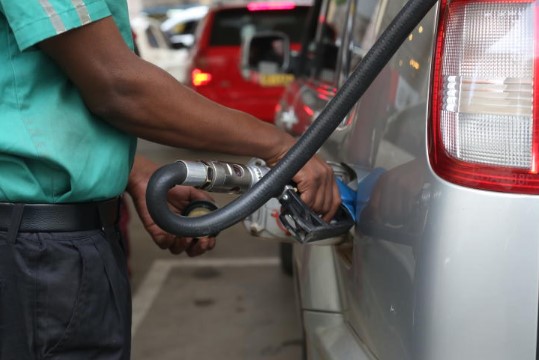×
The Standard e-Paper
Smart Minds Choose Us

A pump attendant fuels a car at the Rubis Petrol Station along Koinange Street, Nairobi. [Elvis Ogina, Standard]
The Government has made good its threat to hold oil marketers accountable for the current fuel shortage that has caused major disruptions in the transport and logistics sectors.